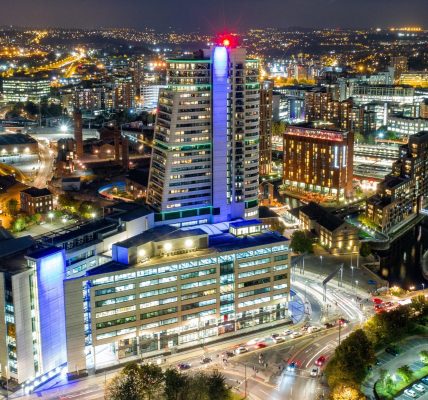Opinion: Why the UK will not recover until international travel is restored
Reigniting the UK economy will be a complex task. While vaccine rollout has increased optimism for a rapid recovery, plenty of hurdles remain. Business confidence must be renewed, consumer freedoms restored, and connections rebuilt between companies, cities and nations if we are to regain lost ground.
Indeed, it is this idea of repairing connections which is proving one of the biggest challenges of recovery – yet one with the potential to yield some of the biggest rewards.
Restarting global traffic is unquestionably a cross-economy priority. The importance of international connectivity extends far beyond firms directly involved in the travel sector, with air, sea and rail routes underpinning activity across the whole economy.
Travel gives businesses access to customers and talent, links firms to global markets, and enables imports and exports via passenger flights, ferry routes, and the Channel Tunnel. Everything from the UK’s world-leading professional services firms, to universities, manufacturers, retailers, and hospitality companies, thrive in large part due to the movement of people and goods, not only into and out of the UK, but between regions and constituent nations too.
There can be no true recovery until this is restored. Airlines UK data reveals a lost summer of air travel alone would cost the UK an additional £26bn, plus £55.7bn in lost trade and 574,000 jobs. That’s why it is vital that Government creates a realistic plan for reopening which generates confidence and momentum.
Strategies must prioritise the protection of public health and safeguard against further surges of infection. None of us can afford a badly managed restart necessitating further lockdowns. Yet the success of the UK’s vaccine push means pragmatic consideration can now be given to a measured, risk-based reopening.
Indeed, our progress means Britain has a unique opportunity to lead the world in restarting international travel – and in doing so, reap the economic rewards earned by being ahead of competitors.
A sensible starting point would be to move away from inflexible quarantine rules to trialling travel corridors to key destinations. High-value trade routes to New York, Singapore and Dubai, as well as high-volume leisure destinations, should top the list.
We can test and define robust and workable international standards on vaccination and testing rules and recognition, data sharing and practical implementation. To achieve this, Government must co-operate closely with other nations – especially our friends across the EU – to restore links with countries representing the majority of UK travel destinations.
Successfully restarting travel will reopen access to world markets. This would provide an instant lift to UK and our region’s competitiveness, for sectors as diverse as professional services through to advanced manufacturing.
It can also protect jobs in the UK aerospace sector – the world’s second largest – as well as growing and regionally-significant international rail and maritime industries.
Safeguarding these jobs is vital to minimise long-term economic scarring. For firms delivering international travel, a reopening would offer an opportunity to trade their way to recovery.
Businesses of all sectors and sizes stand ready to support the Government in its next steps. They recognise that the road ahead will not be easy. But business – and society at large – craves the opportunities which international travel creates. Positive momentum to remove barriers and establish a new normal cannot come too soon.










